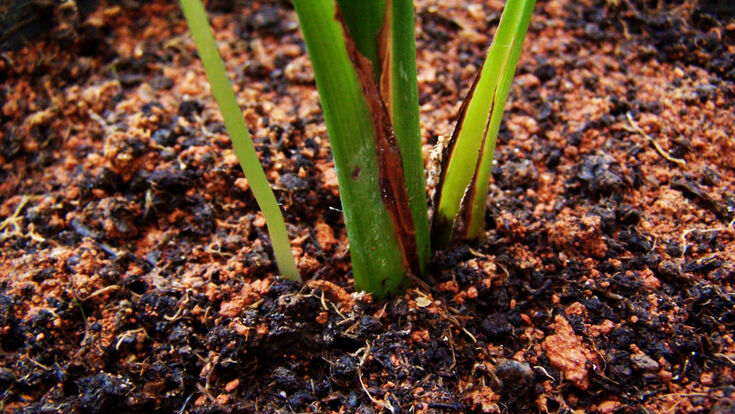Returning Organic Matter to the Soil Key : ISWA Blog: How Waste Can Help Protect Top Soil

As we leave 2015, the United Nations Year of Soil, behind us, ISWA President David Newman explains the role of waste managers in ensuring soils remain healthy, water retaining carbon sinks.
2015 was the United Nations Year of Soil. How many of you knew that ? I admit, it passed me by more or less until almost the end of the year itself.
Yet the UN did well to draw our attention to the quality of soil, by which we normally mean topsoil, the top 30, 50, 100 cms of soil in which plant life flourishes. It communicated this poorly, but the arguments in favour of greater soil protection are so abundantly clear.
Soil feeds us. It’s simple. But soil also stores water, CO2, bacteria, and acts as the carrier of human recreaton- gardening, sports fields, golf courses, parks and so on. Good soil quality is essential to the future of human life on the planet, but also to our enjoyment of our free time. It’s one of those components Nature provides us, along with air, water and sunshine which nourishes our existence in so many ways.
The recent floods in the UK, but we can look at thousands of examples globally, were exacerbated by poor soil management. The cleaning of the moors on the Pennines contributed to flash flooding in Hebden Bridge. The Chinese only started planting billions of trees, once they realised they needed to control the water running down bare hillsides into the Yellow River and flooding communities downstream. And every flood means more topsoil is washed away, silting rivers (therefore reducing their capacity to take water away) and depleting good agricultural land.
So, you may ask, what has this to do with waste? Well there are a couple of interconnections between waste and soil quality.
1. Farmed soil needs a continual supply of nutrients to maintain its fertility. Generally we use chemical based fertilisers to supply these and such products have helped lead to the boom in production farmers have seen over the last decades- though those increases have flattened out. However, chemical fertilisers have negative effects to on water quality, generally through the leaching of excessive volumes of nitrates applied to soil. And the risk is that the law of diminishing returns compels farmers to load their soils with ever greater quantities of nitrogen to maintain yields.
Organic soil improvers, generally from a compost base, are a partial answer to this problem, as they release their nutrients more slowly and add, as well as nitrogen, organic carbon matter.
2. The second link is carbon sequestration. Soil is a carbon sink. We don’t know quite how much but I feel we should be researching this more. Certainly, poor soil management is one of the causes the UNFCCC says contributes to increased CO2 emissions, but I am not sure we know how much soil can contribute to holding carbon in its structure. We need to know more.
Waste managers have daily access to large volumes of organic waste, mainly food, garden and some agro-industrial waste, which in many countries are composted (or digested for their biogas), stabilised and returned to soil. In some countries, compost value is virtually zero as soils are rich in organic matter (and face a lot of competition from animal manure in Ireland, Netherlands, Denmark and so on); in others, especially the north African countries where compost sells at €300/tonne, organic matter is at a premium.
Getting organic matter back to soil is a question of ensuring its quality to farmers, so soil is improved and not polluted. Permitted pollutant levels in digestate and compost need to be lowered to ensure this, for example by reducing plastic contamination. But above all, collection systems need to be enhanced to ensure clean organics go to composting- it is difficult to compost a plastic bag.
So waste managers are also fertiliser providers, flood control officers (fertile soil with optimal organic contant improves water retention), and potentially, carbon kidnappers. Think about that next time you consider designing your collection systems.
You can read more on this in Dr. Jane Gilbert’s excellent report for the ISWA Task Force on Resources on our website: Circular Economy: Carbon, Nutrients and Soil. http://www.iswa.org/iswa/iswa-groups/task-forces
David Newman
Read More
ISWA Blog: COP21 and Circular Economy Package Standout in Troubled 2015
David Newman, ISWA President, explains that in spite of a troubled year much was achieved in 2015, hopefully paving the way for a brighter 2016.
ISWA at COP21: Tax Carbon, Recognise the Role of Waste Management in Emission Cuts
The crucial role that improved waste management could play in mitigating climate change has been made by the International Solid Waste Association’s (ISWA) president, David Newman, at the COP21 Climate meeting in Paris.
Challenges for the Waste Industry in the EU
Over this summer, while reflecting upon the discussions going on in the EC on the Circular Economy, I looked at the potential impact of outside forces beyond our control on the recovery of secondary raw materials in Europe.

